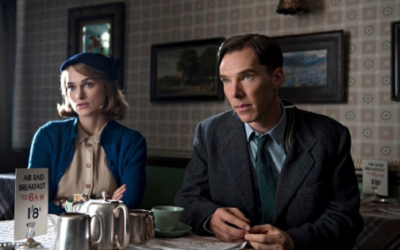Reel Review: Beasts of the Southern Wild
By Katie, Reel Equality Film Club Volunteer. Thursday 25th February 2020, 4.05pm.
Much discussion and deliberation has gone into the way Reel Equality Film Club chooses films for screenings. We’ve detailed many ways in which a film could represent women in fair or unfair ways, and created a criteria checklist. Usually, no film ticks all the boxes. We use the Bechdel test* to help us decide if the film is telling a woman’s story. We then discuss other considerations, including seeking to show a diversity of women’s stories, and avoiding films in which women are portrayed only as victims or only in stereotypical female roles (such as carers, or home-makers). We also avoid films where women only seem to be present primarily for their looks or sex appeal.
From the perspective of gender equality, what did we think is good about Beasts?
The character Hush Puppy is amazing, utterly undefined by her gender. She is a three- dimensional, real character in her own right. She is tough, without being mean, she’s autonomous and intelligent. It’s also impressive that this role was written for a child, as the types of roles for women are generally not that diverse. It’s interesting that although a female character is central to the film, there are only brief exchanges between the female characters, including one short (and possibly imaginary) conversation with Hush Puppy’s mother. We still thought the film was woman-centric enough to merit including.
There are other quieter female characters who are quite crucial to the story. For example, the children’s teacher explains to the children how to care for sick people and tells them stories that fuel their imagination. The teacher is wise, too: when the men try to blow up the dam, she doesn’t want them to because she knows the salt water will kill everything.
What did we find problematic with the representations of gender in this film?
Hush Puppy is arguably a bit gender-less. On the one hand, this could be an ideal way to portray women and girls, with them not conforming to strict gender roles. But on the other hand, she is also often referred to as a man, and the characters generally tend to hold masculine character traits in higher esteem than feminine ones. There are dozens of quotes from the film that could be mentioned here about ‘acting like a man’, but examples are: “You gonna’ be the king of the bathtub, I promise”, “brave men don’t run from their homes”, “probably a side effect of you being a stupid little girl.” And Hush Puppy’s father: “WHO DA MAN??” Hush Puppy: “I’M DA MAN!” When Hush Puppy starts smashing up their house in anger, her father seems very pleased, and a couple of time he reminds her of their “no crying” rule. Prioritising the male traits seems to be the way things are in this place. On the other hand, the wise teacher is ignored in her warnings about the damn, and the men’s short-sighted plan goes ahead (with the help of Hush Puppy). This makes all the men look quite stupid, which is not a great representation either.
*To pass the Bechdel Test, a film must meet the following 3 criteria: Are there at least 2 women in this film? Do they ever talk to each other? About something other than a man?
Other Reviews
The Voices: His Voice, Her Murder.
Challenging violence against women in real life requires challenging the way it is often glamorized or trivialized in fiction. Equation's Reel Equality volunteer, Sarah, explores the casual infliction of violence against women in Hollywood through a review of Marjane...
How to imitate the clever woman: The Imitation Game and Hollywood’s Reluctance to Allow Women A Mind
The Imitation Game follows mathematician Alan Turing as he designs a machine that interprets messages sent between the Germans and solves the Enigma Code. The film also pinpoints a time when society’s attitudes to women and homosexuality remained brutally regressive,...
Upcoming Reel Equality Events
No Results Found
The page you requested could not be found. Try refining your search, or use the navigation above to locate the post.
Other Ways to Get Involved
Reel Equality
Equation’s award-winning Reel Equality Film Club shows great movies that tell women-centred stories and challenge gender stereotypes. Join our campaign for better representation of women on screen.
Campaign With Us
We campaign in Nottingham and Nottinghamshire to raise awareness of domestic abuse, gender inequality and signpost survivors to safety and support.
Social Media Ambassadors
Campaigning online is a great way to take action and can be done from anywhere.
How you can help
No matter how much time, money or resources you can afford to give, your support will make a difference.
£10
Give monthly
Could pay for four children
to take part in our early intervention projects
£30
Give once
Could pay for one primary school child to receive our healthy relationship education program
Support equation
Check out the other ways you can support us


